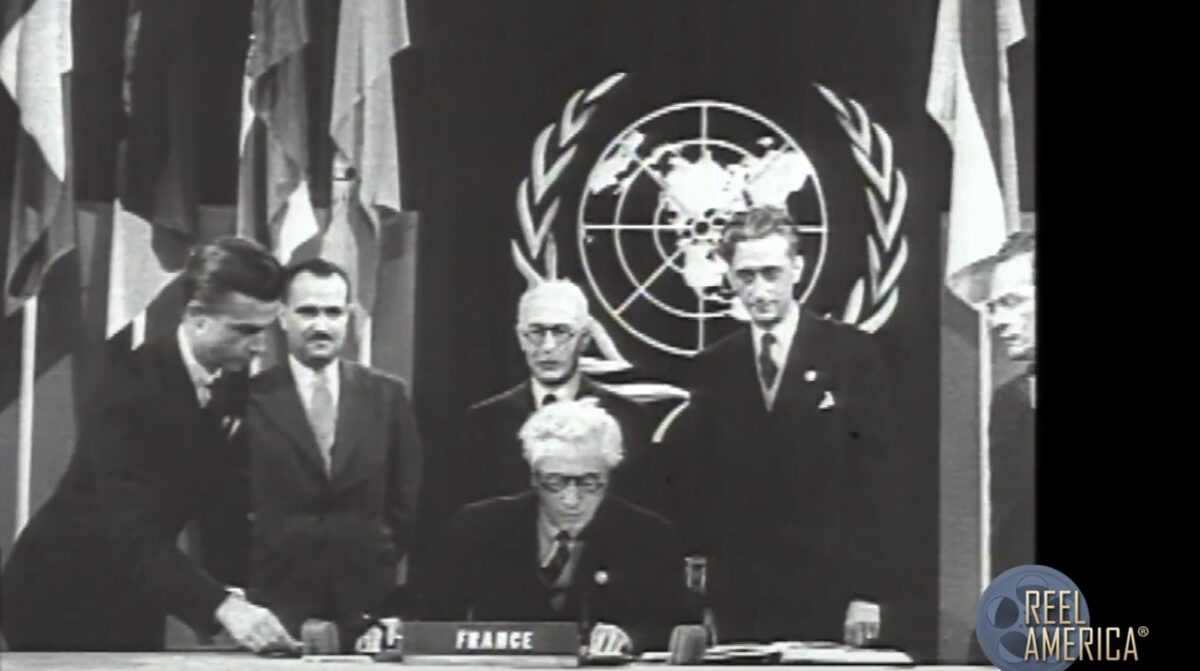Above: A scene from the June 1945 signing of the U.N. Charter
For many decades now, Israel has acted as the tip of the spear for “White”, Western colonial domination of West Asia and much of North Africa. Through prodigious and focused efforts, Israel’s leaders so successfully meshed their military and technological elites with those of the United States that they achieved a large degree of control over U.S. actions in countries from Iran to Libya– including, of course, U.S. policy on the crucial Palestine Question.
The fully U.S.-backed genocide that Israel has pursued for the past two years in Gaza has echoed a lengthy string of similar actions that “White” colonial powers– including the United States–have enacted against Indigenous peoples on all continents for the past five centuries. In today’s largely post-colonial world, this genocide has thus provoked a tsunami of revulsion across (and beyond) the whole of the Global South. This has greatly reduced the appeal and “soft power” that, before October 2023, Washington was able to deploy in its conduct of world affairs. It has also thrust the 30-year-long, de-facto hegemony that Washington has exercised over the UN’s global-level decision-making into ever sharper question.
Israel’s genocide in Gaza and the international reaction to it are now seen by many as marking the beginning of the end of the lengthy domination that “White”, European-origined governments have exercised for many centuries over much of the Global South.
We should note, too, that during this genocide Israel’s leaders have harshly attacked not only the steps that various bodies of the now 80-year-old United Nations have taken to end or temper the genocide, but also the foundations of UN legitimacy itself. They have thus presented the post-1945 world system with the greatest challenge it has ever seen.
Last June saw the 80th anniversary of the signing in San Francisco of the UN Charter by the leaders of all 51 of the world’s then-recognized independent governments. (That was before the dismantling of the large, globe-girdling European empires. Today, the UN has 193 members.) This September will see the opening of the 80th annual session of the UN General Assembly (GA). At this year’s GA more questions than ever before will be raised about the dysfunctionality of the UN rule that has allowed Washington to repeatedly wield its veto in the UN Security Council to block the Council from acting to end Israel’s genocide in Gaza, or to end Israel’s many other gross violations of international law across West Asia.
Continue reading “Gaza, and the UN at 80”
